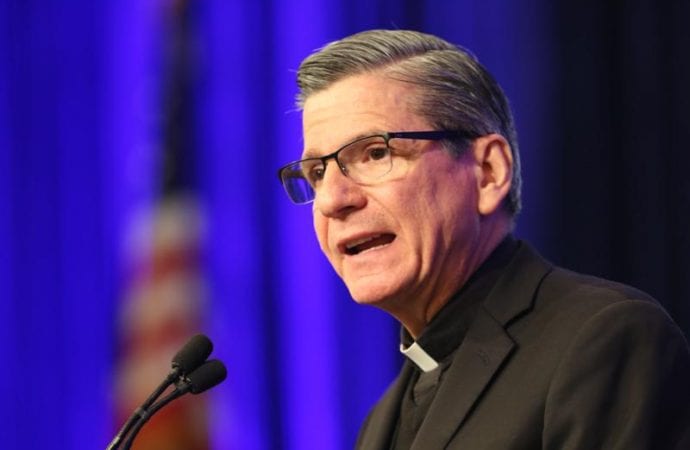Less than 24 hours after calling out President Donald Trump for “hate and racism,” San Antonio Archbishop Gustavo Garcia-Siller walked back those comments in a statement saying he regretted that they “were not focused on the issues but on an individual.”
On Monday, Garcia-Siller posted a series of Tweets following the president’s address to the nation in light of recent gun massacres in El Paso, Texas and Dayton, Ohio.
In his Tweets, Garcia-Siller pleaded with Trump to “stop hate and racism, starting with yourself.” In another, he wrote: “President stop your hatred. People in the US deserve better.”
In a follow-up statement, posted online and on the diocesan website in both English and Spanish, Garcia-Siller said that “it is my ministry to serve your spiritual needs, and to express myself in ways that convey compassion, civility and build up unity.”
“All individuals have God-given dignity and should be accorded respect and love as children of God, especially in our conversations and interactions,” he continued. “We should be aware of this in our discourse about the Office of the President of the United States, which is due our respect.”
While distancing himself from his remarks directed specifically at the president, he went on to insist that the country has a fundamental issue with racism which he said must be addressed.
He highlighted the recent pastoral letter on racism from the United States Conference of Catholic bishops (USCCB) that states, “Every racist act - every such comment, every joke, every disparaging look as a reaction to the color of skin, ethnicity or place of origin - is a failure to acknowledge another person as a brother or sister, created in the image of God.”
“No one has the moral right to make racist statements,” he continued.
“These are the things I want to tweet and preach about and initiate renewed dialogue. Let us focus on this. My prayer is that this leads to healthy national conversations on these issues which affect many people in our country,” he said.
“There is growing fear and harassment, and at times American public discourse uses rhetoric that instigates fear against foreigners, immigrants and refugees. We must pray fervently for peace amidst all of the violence which seems to be overwhelming our society. We must be lights in the darkness. Let us further the values of the Kingdom,” Garcia-Siller said.
“We do not need more division, but rather, we need to move forward in freedom to discuss these topics more deeply in light of the Gospel,” he concluded.

